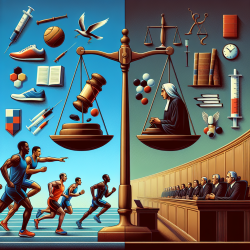Introduction
The recent decision by the Court of Arbitration for Sport (CAS) in the case of IOC v. Valieva has sparked a significant debate within the sports community. This case highlights the complex interplay between judicial authority and the governance of international sports. For practitioners in the field, understanding these dynamics is crucial for effective advocacy and policy development.
The Valieva Case: A Brief Overview
Kamila Valieva, a 15-year-old Russian figure skater, was allowed to compete in the 2022 Olympic Games despite a positive drug test for trimetazidine, a prohibited substance. The CAS panel's decision to permit her participation, despite the World Anti-Doping Code's (WADC) mandate for a provisional suspension, was controversial. The panel justified its decision by identifying a gap in the WADC concerning protected persons, such as minors, who face different standards and consequences under the Code.
Implications for Practitioners
The Valieva case underscores the importance of understanding the legal frameworks that govern international sports. Practitioners can draw several lessons from this case:
- Understanding Legal Gaps: The CAS decision highlights the need for practitioners to be aware of potential gaps in existing regulations and how they might affect athletes, particularly those considered protected persons.
- Advocacy for Athlete Rights: The case emphasizes the role of legal advocacy in protecting athletes' rights and ensuring fair treatment under international sports law.
- Engagement with Governance Structures: Practitioners should engage with the governance structures of international sports organizations to advocate for more representative and accountable policies.
Encouraging Further Research
For those interested in deepening their understanding, further research into the governance and legal frameworks of international sports organizations is recommended. Such research can inform policy changes and enhance the advocacy strategies of practitioners.
Conclusion
The CAS decision in the Valieva case serves as a pivotal example of the role arbitration can play in the international sports system. Practitioners are encouraged to consider the implications of this decision and to continue exploring ways to advocate for fair and equitable treatment of athletes.
To read the original research paper, please follow this link: The Court of Arbitration for Sport's Decision in IOC v. Valieva: An Example of Arbitral Activism or Necessary Arbitral Activity?










